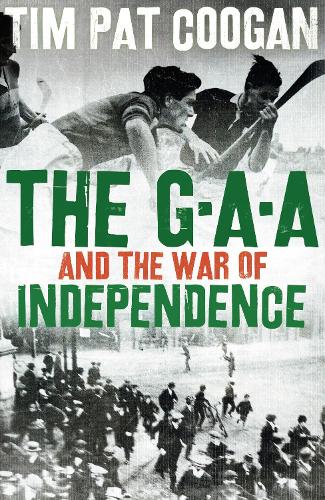
The GAA and the War of Independence
(Hardback)
Publishing Details
The GAA and the War of Independence
By (Author) Tim Pat Coogan
Bloomsbury Publishing PLC
Head of Zeus
1st December 2018
United Kingdom
Classifications
General
Non Fiction
941.50821
Physical Properties
Hardback
320
Description
Founded in 1884 to promote Irish identity and revive the traditional sports of hurling, football and handball, the GAA enjoyed an intimate relationship with the nationalist movement from the turn of the twentieth century onwards. In 1914, the Irish Volunteers drilled with hurley sticks in the absence of rifles; after the 1916 Rising many of those interned by the British were GAA members; and on 21 November 1920, a Gaelic football match between Dublin and Tipperary at Croke Park was interrupted by a raid by British crown forces that left fourteen dead in Ireland's first 'Bloody Sunday'. With affection and authority, Tim Pat Coogan traces the stirring story of an institution which, from modest beginnings as a grass-roots sporting organisation, has grown into a cornerstone of Irish society both North and South. The Gaelic Athletic Association is, Coogan argues, the most socially valuable organisation in Ireland, whose ideal of voluntarism has contributed to a distinctive sense of national identity that flourishes wherever green is worn.
Reviews
A new book has charted the 'intimate' connection between the GAA and Irish freedom. Historian Tim Pat Coogan has investigated the influential role played by the association in the revolution * Irish Independent *
Tim Pat Coogan's new book underlines the association's huge role in galvanising people against British rule, and how it acted as an important unifying force * Irish Examiner *
With his usual erudition and readability, he considers the border campaign of the 50s, The Troubles, and the Hunger Strikes * Irish News *
In The GAA and the War of Independence there is little room for doubt. The book knows what it is for, and knows who it is against. It asks few questions, and even fewer to which it doesn't already have an answer * Irish Times *
Author Bio
Tim Pat Coogan is Ireland's best-known historical writer. His 1990 biography of Michael Collins rekindled interest in Collins and his era. He is also the author of The IRA, Long Fellow, Long Shadow, 1916: The Mornings After and The Twelve Apostles.
